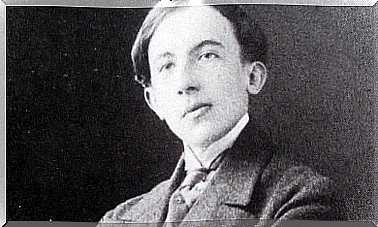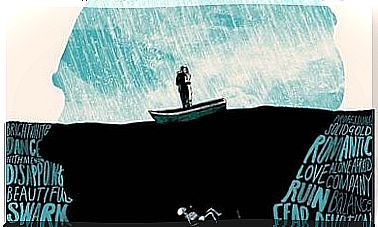Missing, Absences That Never Stop Hurting

Missing is like a misspelling in the heart that is rarely resolved. Because there are absences that hurt more than others, that weigh on the memory to the point of creating a void through which the illusion and quality of life escape. Missing someone goes beyond nostalgia, and in many cases it is not easy to alleviate the wound of absence.
It is curious how, sometimes, within clinical practice, people tend to describe themselves not because of what they do, not because of what their lives occupy or those characters that define them. Some people do not hesitate to add phrases such as ‘ I am a person who lost his mother when he was twelve years old ‘ or’ I am nothing since my partner left me eight months ago ”.
Absences, somehow, also define us. What we lack draws a deep mark that defines our being. Therefore, it is not easy to live when in our mind there is only the persistent sensation of missing someone, of feeling that constant blockage that prevents us from seeing beyond the loss and that takes away the opportunity to perceive ourselves in another way … people capable of creating happier and more satisfying realities.

Missing why does it hurt so much?
Missing is an essential characteristic in the human being. Moreover, if there is something that our brain does in excess, it is to look in the mental rearview mirror to feed nostalgia. So much so, that studies such as the one carried out at Duke University by Dr. Laurence Jones, indicate that the brain is more nostalgic than proactive. I mean, we seem to spend more time conjuring up memories than focusing on the here and now.
Something that is normal by itself can sometimes become unhealthy. We refer to those states where the act of missing someone becomes constant and obsessive; to the point of not being able to concentrate on something other than that absence. Longing can sometimes be a painful act that can place us in states of high psychological vulnerability.
Furthermore, experts on the subject, such as Dr. Donald Catherall of Northwestern University in Chicago, point out that there are two circumstances that tend to be more traumatic when we talk about losses. They are as follows.
Losses during childhood, eternal absences
Losing a parent during childhood creates one of the deepest hurts a human being can experience. Thus, not only does death trace the traumatic mark of a memory that is very difficult to handle; abandonment also has the same effect. Both circumstances place the child in a state of great emotional vulnerability from which it is not easy to recover.
In fact, it is very common to reach adulthood feeling the mark of that absence. The void left by a father or a mother not only creates a wound, but also defines an almost constant imprint where the person has the eternal feeling that something is missing. This experience often leads to attempts to fill this gap with dependent relationships, or with substance abuse or eating disorders.

Missing a loving partner
Missing a lost love definitely defines one of the most common realities. It is a type of multifaceted pain, it has many faces and they all have one element in common: suffering. We long for the happiness of yesteryear, we miss the lover, the friend, who was our confidant and whom we had reserved our entire life.
The breakdown of the relationship means leaving behind all those dimensions that we miss so much. They are also dynamics that defined us, we were part of someone and from one day to the next, we are forced to let go of all this to reinvent ourselves again. And something like that is not easy when longing and nostalgia weigh heavily.
Also, something we usually do in these cases is idealize. We idealize those who are no longer with us, thus feeding a false image that further complicates the power to detach ourselves from those memories to stop being captives of the past.
What can we do to ease the memory of those absences in our lives?
Alfred de Musset, a nineteenth-century French playwright, used to say that both absences and time cease to matter when one loves again. Now, we are not saying that the only answer to stop missing someone is precisely to look for new loves. Actually, there is something simpler: looking for new passions and new meanings to our reality.
First of all, something to keep in mind is that we will never stop missing what we once loved. Whether it is our family, friends or loves left behind, none of these figures will be diluted in our minds until they are completely lost. Your memory will always be there, but it will stop hurting.
Sometimes behind the act of persistent missing is the longing, the need to regain or regain what once gave us happiness and security. Therefore, we must assume that what one day left … can no longer return in the same way. It is not healthy to live only on nostalgia, happiness feeds on immediate realities and as such, we must promote it, shape new illusions by placing our eyes on the here and now.
Missing is not bad, longing for what once was is bad. Therefore, we are able to find a new meaning to our reality, looking for new motivations, new goals with which to get off the train of the past to embrace the present. Let’s try it at least.









